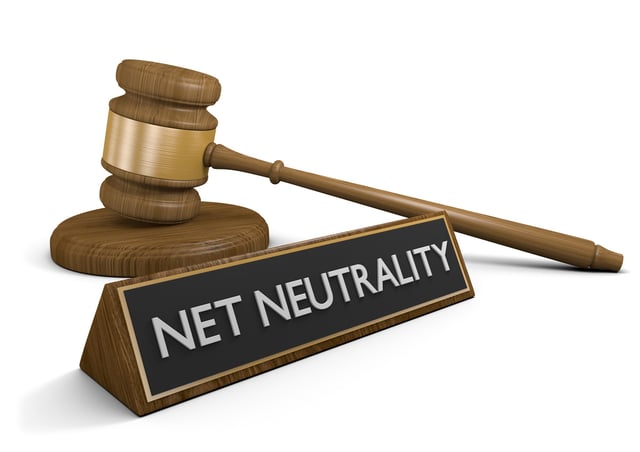Net Neutrality has been in the news a lot lately. While this term has been tossed around, it may be difficult to understand what this catchphrase and its recent ban by the FCC means for our clients.
Let's start with the definition of Net Neutrality, which is the concept that broadband Internet service providers should provide nondiscriminatory access to Internet content, platforms, etc. and should not manipulate the transfer of data regardless of its source or destination. Net Neutrality is also known as Internet Neutrality or Network Neutrality. In simple terms, Net Neutrality is the idea that Internet service providers (ISPs) should treat all online content equally – without blocking or slowing down specific websites on purpose and without allowing companies to pay for preferential treatment. In other words, Comcast cannot slow down access to Netflix so that you’ll keep your cable subscription. And Verizon can’t stop you from using Skype instead of your cell phone minutes.
In recent years, ISPs have violated Net Neutrality, such as when AT&T blocked Apple's FaceTime application, unless customers paid for additional data because AT&T claimed that FaceTime was using too much bandwidth. Before the complaint was formally filed by Apple, AT&T conceded and allowed the use of the FaceTime application on their mobile network without additional charge. Another example is when Comcast started blocking its customers from trading files on BitTorrent by intercepting the data transmitted between the downloader and the file’s host and then sending a message to both parties to disconnect from each other. The FCC determined that Comcast, was in fact, violating the laws, which eventually led to Comcast implementing individual data caps.

So, at the end of all of this, who is effected by Net Neutrality? The answer is that we are still not sure what direction major ISPs will go with the recent ban of the Net Neutrality laws. However, bandwidth consumers (you and me) of the nation’s largest ISPs fear that they will lose or have limited access to content provided via Internet (this includes Netflix, Amazon Prime, etc.). In addition, consumers fear that they may have to pay an additional fee to stream content on the Netflix and YouTubes of the world.
Executive Leadership of several ISPs, including Comcast, have claimed that they do not intend to block or throttle legal content. However, they may engage in paid prioritization. “Fast Lanes” would be the broadband speed lanes that companies such as YouTube, Spotify, and Netflix will most likely pay extra to access. Smaller companies providing content, such as Daily Motion and Vessel, may not be able to afford access to the fast lane and may be forced to operate in the slow lanes – possibly jeopardizing their businesses. Arguments for the ban of Net Neutrality include with less regulations comes more investment (especially in rural communities), different pricing models will spur competition, and today's robust Internet is the result of an unencumbered market.
Do you have questions on Net Neutrality and its recent ban? To answer your questions and to learn more, speak with a dedicated consultant today. ![]()


